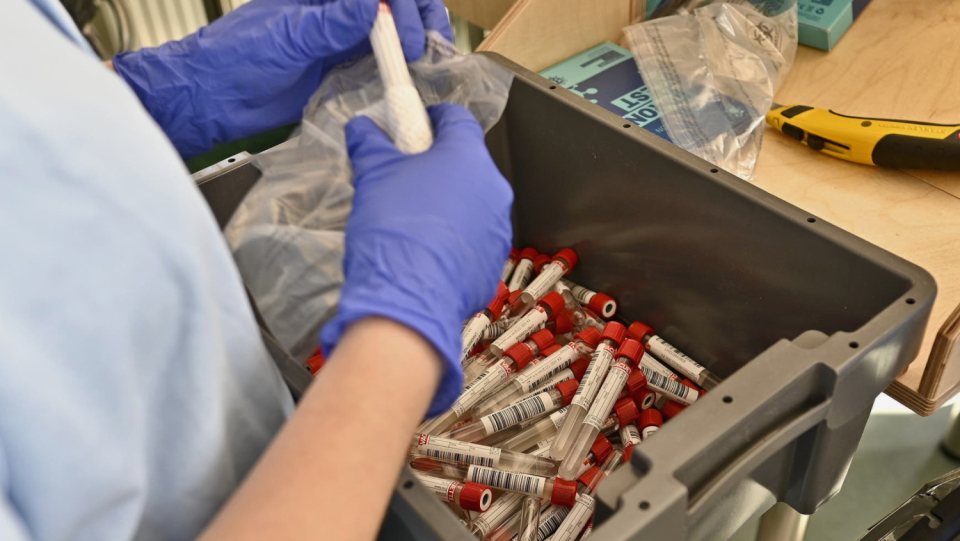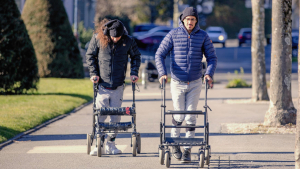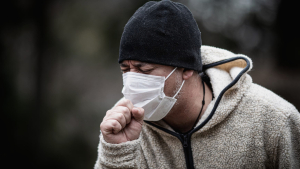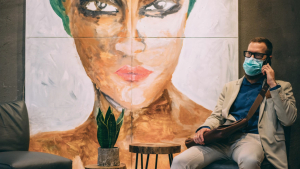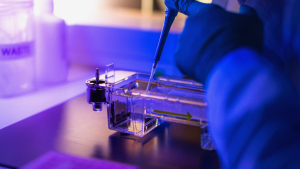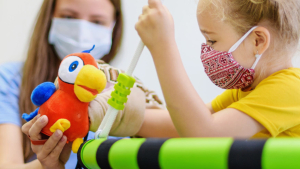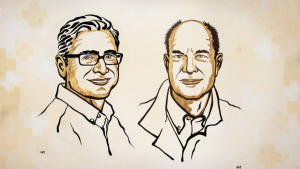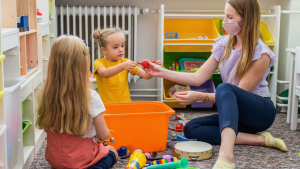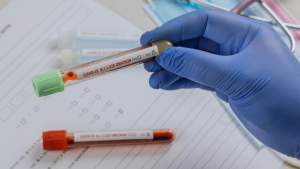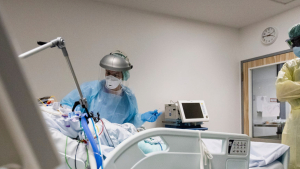Anyone who passed a petrol station in Vienna on a Sunday afternoon in recent months could observe strange things: people flock there in droves, by car, on foot, on bicycle. They ignore the gas pumps, enter the shop directly, throw a small blue box into a large collection box and leave.
The little blue box, that's Vienna's corona test strategy. The strategy, because of which all the discussions that are being held in Germany and elsewhere about the limited informative value of rapid corona tests, the reports about queues in front of test centers and the lack of laboratory capacities for PCR tests, seem like a glimpse into a parallel world for people living in Vienna. Because of the fact that a city of two million people alone sometimes performs as many PCR tests per day as the whole of Germany combined, as many media outlets recently noticed excitedly - according to the responsible laboratory, there were an average of 188,000 per day in January, 356,000 on the strongest day so far at the end of the month. How good is this strategy really? Should Germany take it over?
There is always a stack of small blue boxes on my table. I open one of them two or three times a week and let a tiny plastic vial with saline solution and a tube with a barcode tumble on the table. I log in on a website, rinse my mouth with the saline solution, spit the solution into the tube, put the tube back into the box, walk to the next supermarket or the petrol station and throw the box there into a delivery box.
A maximum of 24 hours later, but usually after ten or twelve hours, I have the link to my PCR result on my cell phone. I don't have to pay anything for this, the result applies if I switch on my webcam when I rinse, also as an official test certificate; I haven't had a chopstick in my nose for months.
Why is Germany not using the strategy?
For many people in Vienna, it has long been a matter of course to throw in a PCR test before training in the sports club in front of meetings with friends. 1.3 million Viennese - two thirds of the population - use the project "Everything Gurgelt!" At least once in 14 days, says Mario Dujaković, spokesman for the Vienna Health City Council.
For them – for us – »Alles gurgelt!« is enormously practical and convenient. Why hasn't such a program already existed in Germany, at least in the big cities? Are there any plans in this direction?
The Federal Ministry of Health and the Berlin Senate Department for Health left inquiries unanswered. At the Munich health department, it is said that you know the project, but do not plan anything similar, "because the PCR capacities in Munich were still sufficient" and because "in our opinion such a project in the test and reporting strategy as well as in the strategies for contact person management of the Federation and the countries should insert «.
The Hamburg social authority responds that because of the exhausted laboratory capacities, it is now "short-term" above all a matter of "concentrating the available capacities on vulnerable groups of people and those in the field of critical (health) infrastructure". Therefore, "a detailed evaluation of further strategies of other cities could not be made at present." Short-term«, »currently« – it reads as if the city of Hamburg had been sleeping for the last year. The »Alles gurgelt!« project has been running since March 2021, and the laboratory capacities for this first had to be built up in Vienna.
It is not that simple.
The laboratory company Lifebrain initially rented one, then several other buildings, installed dozens of pipetting robots and PCR analysis devices and hired hundreds of employees. It evaluates the samples pooled, always ten at a time, only in the case of positive pools each sample is examined again individually. For »Alles gurgelt!«, the city also cooperates with the company Lead Horizon, which provides test kits and IT infrastructure, with the Rewe Group, whose branches serve as drop-off points, and with the post office, which brings the samples to the laboratory.
Schlaraffenstadt Vienna, snoring Germany? With this tenor, German media recently reported on "everything gurgelt!".
But it's not quite that simple. If Austrian experts are asked whether the benefits for society as a whole justify the financial outlay, a more differentiated picture emerges. "The cost-benefit analysis is very difficult," says Peter Klimek, a complexity researcher at the Medical University of Vienna and a member of the Austrian Covid Prognosis Consortium.
The problem begins with the interpretation of the number of infection. In the fourth wave in autumn, Vienna constantly had the lowest incidence among all Austrian federal states. On the other hand, more cases per day are currently registered here than in almost all other federal states, more than in Berlin or Hamburg. But the naked numbers convey a wrong picture: the number of unreported cases in Vienna and thus all over Austria should be much lower than anywhere else. The idea behind the extensive testing is to find many infected people who either have no symptoms-or that remain asymptomatic and would therefore remain under the radar without screening strategy.
There is no panacea to the pandemic.
Niki Popper, simulation researcher at the Center for Computational Complex Systems at the Technical University of Vienna and a member of the Austrian Covid crisis koordination, considers it plausible that real incidence in Austria could even be lower than in Germany. Calculate a comparative value - for example via the positivity rate, which is currently 32 percent in Germany, but only 2.5 percent in Vienna - cannot be seen.
However, it is possible to calculate how much a well-functioning PCR screening program can reduce the effective reproduction number: by about 15 percent. "It's not a miracle pill, so I'm not ending the epidemic," says Popper. However, this applies to practically all measures. 15 percent, which is about the same as the prohibition of major events.
Is that also worth it economically? The health economist Thomas Czypionka from the Institute for Higher Studies suspects that the money invested would be more sensible elsewhere, for example in the digitization of contact tracking, which is still working badly in Austria. Only in phases with high number of cases do the free PCR tests are useful for everyone from the perspective of Czypionka, and he suspects that the added value would also be accessible by more targeted screenings.
Compared to PCR tests in Germany, the tests at »Alles gurgelt!« are dirt cheap: Six euros, says city council spokesman Mario Dujaković, a gargle test costs the state – all inclusive, from the test set to the evaluation. According to Lifebrain, 24.8 million gargle tests evaluated by the end of January still makes about 150 million euros.
The test plan is reasonably priced.
The health economist Thomas Czypionka calculated in 2019 that an intensive care bed of the highest level costs 3084 euros per day. »Everything gargles!« has so far cost as much as 3400 two-week stays in the intensive care unit.
On the other hand, for all antigen and PCR tests together, whether in pharmacies, test roads or in the resident area, the BUND estimated 1.6 billion euros in 2021, according to Dujaković. And: Each infection prevented by the screening saves the company by the fact that the data subject and their social environment that would otherwise have to be in quarantine do not fail at work.
Niki Popper therefore considers the cost discussion to be »hypocritical«. In relation to the total cost of the pandemic, the cost of testing is "ridiculous." More important problems for him are the question of whether those who test positive isolate themselves quickly enough, and the different testing intensity within the population.
"If a person who is single three times who is alone and works at home, tests every day," it is rather pointless. And in fact you do not necessarily take part in the most regular things when testing: In a survey by Austrian Corona Panel Project, 28 percent of the unvaccinated, non-recovered people stated in the last month, not a single corona test last month to have done.
What counts is how you go about it.
Effective for the containment of the pandemic, the researchers agree, are not so much the practical tests for at home, but the PCR tests in schools, which also gurgled in Vienna twice a week as part of "Everything!" Become: Because children are often not vaccinated, have a lot of contacts and because school tests also reach those families in which otherwise never tested.
It is also crucial how long it takes until the test result is available. A PCR test, the result of which you have to wait two days, brings no more than a current, well-taken antigen test, says complexity researcher Peter Klimek. "But if the result is available within 24 hours, PCR is clearly preferable." With the Okron variant, in which infected people become infectious more quickly, the time factor becomes even more important. "This reduces the usefulness of test strategies, regardless of the type of tests," says Klimek.
For me and the other 1.3 million people in Vienna who regularly fill their spit into small tubes and then make a pilgrimage to the supermarket with a blue box, the Vienna test strategy is a convenient and practical offer. On the other hand, it is not a miracle cure for the pandemic – it is just one instrument out of several, the combination of which first significantly slows down the virus. Should Germany, should German cities adapt them anyway?
> The effort is enormous, the structure took months, says city council spokesman Mario Dujaković. If you would start elsewhere, that would come for the current wave much too late. However, it could still pay off for later waves.
"The question is whether you can get it right," says simulation researcher Popper. "There's no point in doing it halfway." How difficult it is to do it right is currently evident in the other Austrian provinces. There, too, there are now gargle tests, carried out by other providers – and masses of problems with it. Some people apparently received test certificates before they took their test, other results came too late, incorrect, incomplete or were sent to the wrong schools, and the Ministry of Education complained that "an incomprehensibly low number of positive cases" had been reported to him. The ministry is now considering legal action against the provider of the school tests.
If you can do it as in Vienna, Popper says, when large parts of the population and especially the schools regularly participate and the results are quickly there: Then, and only then, the Viennese test strategy will be a good piece of the puzzle in the containment of the pandemic.







